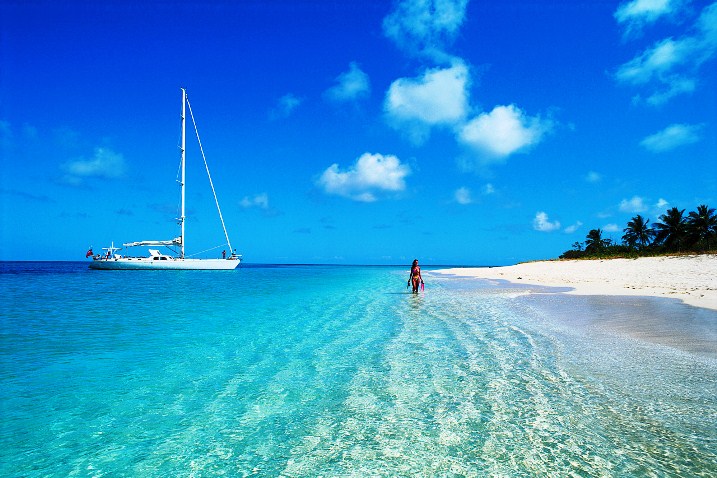For a long time, yachts, and in particularly super and mega yachts, were the last things associated with being eco-friendly, but technological advances in hybrid and solar power, plus huge investment in creating more fuel efficient vessels, mean that chartering a yacht is now a lot greener than you might think and we are a lot closer to GOING GREEN TO SAVE THE BLUE ocean.
In fact the Charter Yacht Brokers Association (CYBA) is spear-heading the initiative by awarding a “Going Green” award at every yacht charter show.
The Green Yachts Making Waves
 The solar-powered catamaran MS Turanor Planet Solar has just completed its round the world tour powered purely by light, proving that big ambitions when it comes to green technology can be realized.
The solar-powered catamaran MS Turanor Planet Solar has just completed its round the world tour powered purely by light, proving that big ambitions when it comes to green technology can be realized.
The vessel has a total area of 516 sq m given over to solar panels making it the biggest solar powered ship in the world. There are lots of other motor yachts that are demonstrating their green credentials, too, such as the Greenline range of yachts, which markets itself as the world’s first production hybrid boat and which comes in 33ft, 40ft and soon 48ft versions. The yachts are built on a super-displacement hull design and powered by a protected diesel and electric hybrid propulsion system.
The boats are available for yacht charter in Europe and are also being marketed for sale in the US so we could soon see them available for charter here, too. The vessel that calls itself the largest, greenest yacht in the world, however, is the mammoth 42-meter Ocean Supremacy from Sauter Carbon Offset Design, which despite her huge size can still reach speeds of up to 53 knots, while at 14 knots she apparently emits zero carbon and boasts a 50% reduction in fuel consumption.
Changes to Yacht Regulations
The yachting industry has got greener over recent years, largely because it has had to. Changes in regulations have led to a decrease in the amount of fuel emissions deemed acceptable, which in turn has led to a new approach to building yachts, changes in cruising habits, as well as a more eco-friendly approach to on board living.
According to the Scientific American, US citizens spend around 500 million hours on board recreational boats every year but until relatively recently our yachts were not subject to the same stringent regulations regarding emissions as our motor cars.
In 2004, however, the United States Environmental Protection Agency introduced new rules regarding marine engine emissions followed by further provisions in 2008 and amendments as recently as this year, which mean vessels have to be greener. This change in legislation has led yacht builders to focus more on reducing fuel emissions and increasing fuel efficiency.
Similarly, we have seen a shift in attitudes to the way charter companies and their customers treat our natural environment while still being able to enjoy the open sea.
For instance, as experts at Iglu Cruise explain, in Alaska all ships have to have a permit to cruise along the stunning coastline and must adhere to guidelines in terms of how close they can get to nature reserves and other vulnerable areas, when to turn their engines off, and how they dispose of their on board waste.
In addition there has been a move towards using different types of fuel to power engines, such as biodiesel. In 2010 the US Navy successfully completed a series of tests on a boat powered entirely using algae, which was hailed as a victory in a move toward more sustainable energy sources.
Biodiesel is not without its problems though, although it can often been sourced wherever there is an abundance of raw materials, there have been reports of it damaging fuel tanks and the current cost is still high.
On-board Additions
Many yachts are now fitted with LED lights, which reduce your electricity use, but once on board your charter yacht there are ways that you can make your life on board more eco-friendly, too. Use green and natural products on board wherever possible (especially when cleaning the outside of the boat as these products may run into the water).
Keeping rubbish on board and dispose of it appropriately when in port and try not to waste water when having showers or doing the dishes. You can also use certain products to prevent your holiday from impacting negatively on the environment, such as using bilge socks so that excess diesel doesn’t spill over into the marina.








